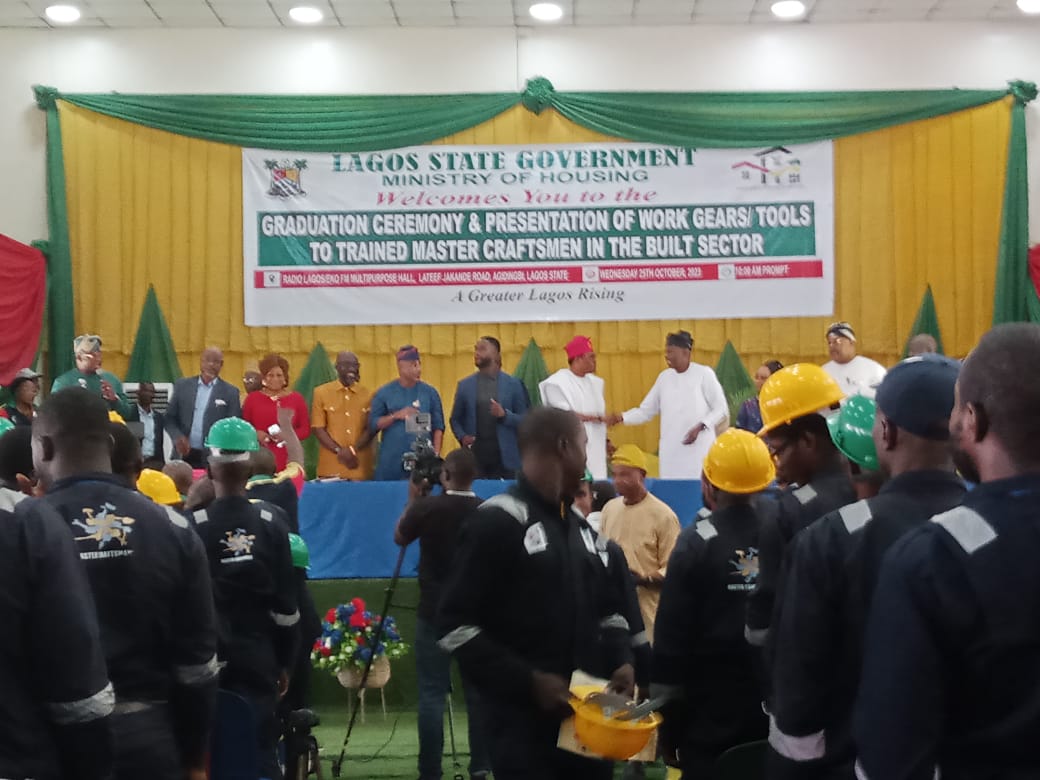
The governor, represented by the Commissioner for Wealth Creation and Employment, Akinyemi Ajigbotafe, on Sunday, disclosed this at the graduation ceremony and presentation of work tools to trained master craftsmen in the built sector held in Lagos.
He said, “In pursuance of our commitment to youth empowerment and the growth of the informal sector, we will create additional centres towards engaging more artisans in the subsequent phases of this programme. The objective is to further bridge the over 15,000 skill gaps in the built sector and ultimately stimulate the provision of sustainable, decent, and affordable housing projects for the state.
“As a government, we have consistently identified gaps in the various sectors of the economy and equally set plans in motion to address them. Hence our desire to build sustainable and affordable housing projects across the state leveraging on raw talent from within our space, promoting local content, especially in areas such as masonry; furniture & carpentry; plumbing & pipe fitting; electrical installation & maintenance; painting and decoration.
“In addition, we are committed to not only growing the capacity of artisans but also networking them to potential markets and making them the first priority for our housing projects across the State. In line with this commitment, the graduating class will be added to the database and uploaded on the website of the State Government in a bid to give them global recognition. Today, we are not just graduating artisans; we are also giving them the required tools to push through the skills gathered in the course of the intensive training facilitated by qualified and certified trainers.”
Meanwhile, the Commissioner of Housing, Moruf Fatai, said the need to upscale the training of the Artisans and Craftsmen in the built sector was vital to the success of the vision of the Governor.
He said, “Having conceptualised this initiative based on the contributions and value it will inject into the housing value chain, the programmes of the training were designed to cover both theoretical and practical methods, thereby exposing participants to contemporary concepts, techniques, practice, and approaches from start-up to close up within the built sector.
“I strongly believe that our initiative of bridging the skill and capacity gaps in the built sector will significantly enhance the housing sector, create employment and wealth while leveraging on the youth population, promote local content, stimulate the informal sector, create healthy competition, and consolidate the efforts of the State Government in the provision of safe and sustainable housing projects for the public, thereby contributing to the eradication of global housing deficit.”
According to the commissioner, in repositioning the gap, the master craftsman training programme of the state in the first instance was designed to cover diverse areas within the housing value chain which includes masonry, furniture & carpentry, plumbing & pipe fitting, electrical installation & maintenance, painting & decoration.
“However, the ministry is expected to scale up the coverage areas and training centres to expand access across the value chain and grant opportunity to the teaming youths/artisans across the state,” he added.





